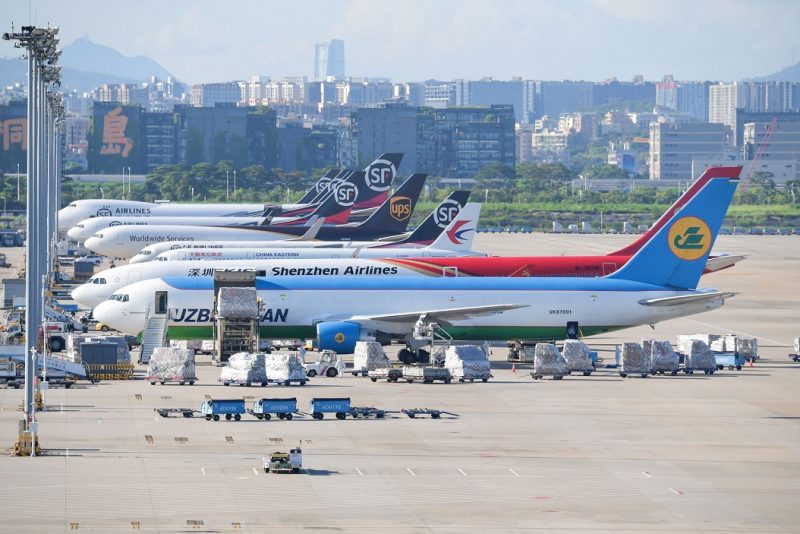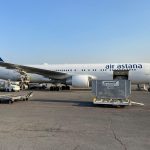Shenzhen Airport’s cross border ecommerce volumes doubled, thanks to more freighter flights
Shenzhen Bao’an International Airport’s cross border e-commerce volumes doubled in the first seven months of the year, and it expects a further increase in the final five months thanks to the addition of more freighter flights.
The Chinese airport handled a total of 93,000 tons of cross-border e-commerce traffic between January and July – up 101% year on year – thanks in part to the addition last year of a Beoing 777 freighter flight jointly operated by Central Airlines and e-commerce logistics firm YunExpress.
At the end of July, the two partner airlines added a second 777 freighter to the operation which should boost volumes further.
The extra freighter will be used to increase the frequency of the airlines’ Shenzhen-Paris service from three flights per week to six flights per week.
Meanwhile, their Shenzhen-Riyadh route will increase from one to two flights per week.
“The weekly outbound transportation capacity from Shenzhen Airport to Paris, France and Riyadh, Saudi Arabia will be increased to over 600 tons and 200 tons respectively, mainly carrying various cross-border e-commerce goods from Shenzhen, building a more efficient and smooth air passage for Shenzhen cross-border e-commerce enterprises to expand into the European and Middle Eastern markets,” the airport said.
Shenzhen-based Central Airlines operates six freighters on five routes: Shenzhen to Riyadh, Clark (Philippines), Davao (Philippines), Jakarta and Paris.
The growth in e-commerce volumes follows a focus on the traffic at the airport.
Since the beginning of this year, Shenzhen Airport has seen the addition of five new international freighter routes and increased the frequency of five existing services.
The airport said that seven of these additions are cross-border e-commerce routes: from Shenzhen to Paris, Liege, Sao Paulo, London, Davao, Tel Aviv, and Riyadh.
In total, the airport boasts 35 international and regional freighter routes.
Electronic products account for approximately 40% of Shenzhen’s cross-border e-commerce goods.
To cater to this demand, the airport is piloting the implementation of a new model for lithium battery cargo air transportation using the battery safety test report (UN38.3) in China – a UN safety test for the transport of the battery type.
“Shenzhen Airport excels in understanding the pain points and voices of market entities, actively promoting a series of innovations and pilot projects, and opening up a path for the safe and convenient transportation of cross-border e-commerce goods containing lithium batteries at domestic airports.” Zhang Jiaoyun, secretary general of the Shenzhen cross-border e-commerce Association, said.
The airport is also promoting the construction of a” digital express logistics park” and is cooperating with customs to digitalize the express mail process and respond to the rapid growth of cross-border e-commerce business volume.
And it is trialing the first air cross-border e-commerce enterprise processing zone tailored for cross-border e-commerce enterprises in China.
“This project is the first air transportation center in China that specializes in handling cross-border e-commerce goods and has cargo terminal functions,” the airport said.
“It can add 200,000 tons of air express and cross-border e-commerce cargo processing capacity to Shenzhen Airport every year, which will further promote the high-quality development of Shenzhen’s trade and cross-border e-commerce industry.”
YunExpress has been set up in the zone and has a fully automated assembly line.
“Shenzhen Airport has provided us with a good platform and assistance for business development, and we are also optimistic about the cross-border e-commerce industry and the market in Shenzhen in the long term. Therefore, we have comprehensively increased our investment in Shenzhen Airport from facilities to transportation capacity, ” said Xiong Jin, general manager of YunExpress aviation business unit.














